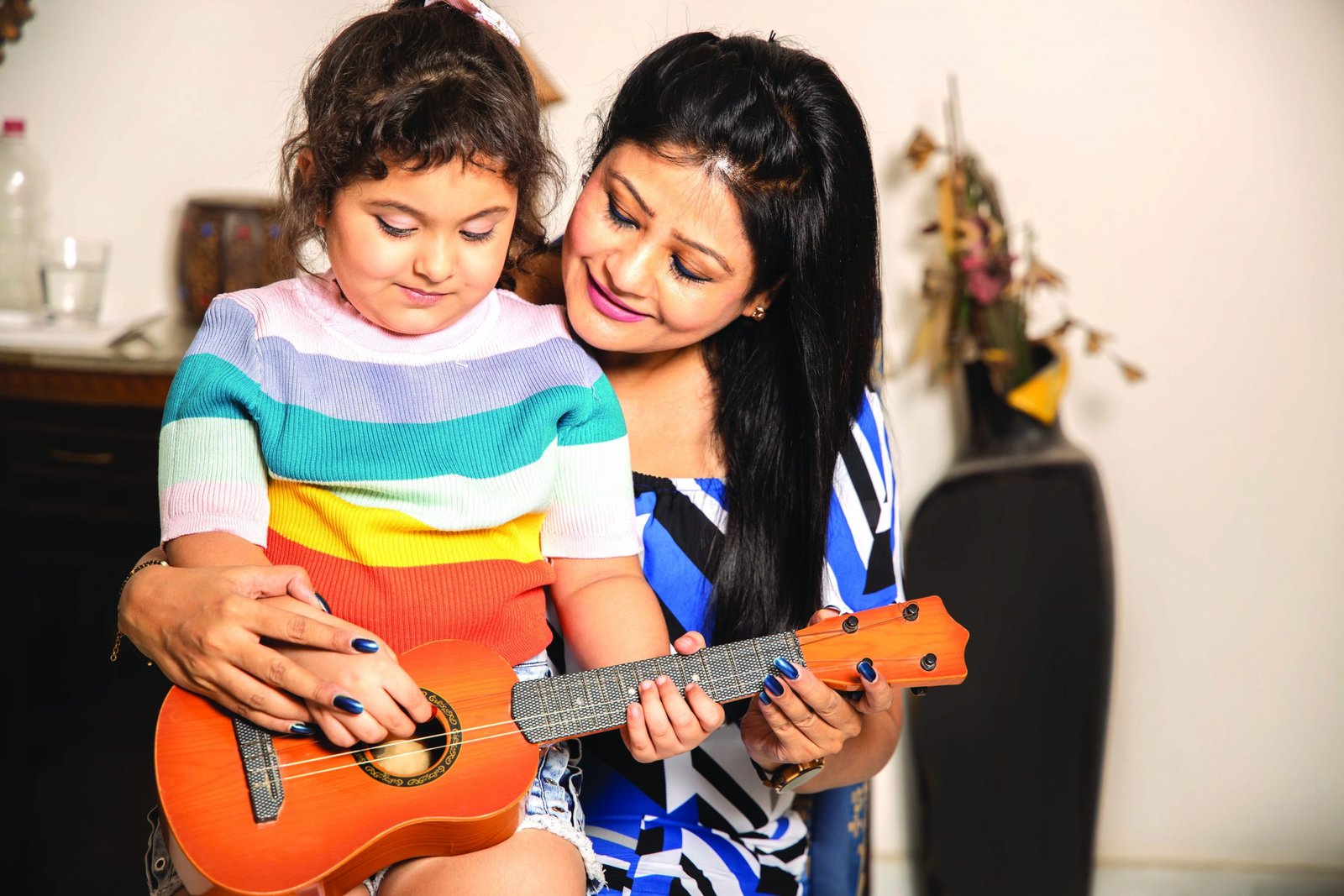No products in the cart.

Don’t overload children with co-curricular activities
While it is the obligation of parents to discover and enable children’s multiple intelligences, they also have a duty of care to ensure that children don’t experience stress and anxiety while managing crammed schedules of co-curricular and sports activities, writes Ramiya Sakthivel, Cynthia John & Mini P.

The maximum learning loss that children experienced during the prolonged lockdown of schools during the past two years of the Covid-19 pandemic, was in co-curricular and sports education. While academic learning switched to the online mode, most co-curricular, sports and outdoor activities came to a standstill.
Now with the pandemic having receded to the point of having become a bad dream, parents are going all out to make up for this loss by enrolling children in a host of co-curricular and sports education classes. From theatre, dance, music, public speaking and robotics to tennis, swimming, badminton and life skills classes, parents countrywide are signing children for an array of co-curricular and extra-curricular programmes.

Yet, although well-intentioned, cramming children’s schedules already full with school and tuition, can compound the disruptive stress that they experienced during the pandemic, warn child counsellors.
The case of Dhruv Chand, a 13-year-old teen living in New Delhi, is instructive. “I enrolled Dhruv in coaching classes of three different sports to make up for two years of sports deficit during the pandemic. But after just one month he started burning out, unable to cope with full-day classes and after-school sports coaching. His grades began to fall and he revealed that he was always tired and had no energy to study. Since then, he has dropped out of one sport and spaced out the coaching of the other two. This has helped him balance his daily schedule better,” says Vineeta Chand, an IT engineer and Dhruv’s mother.
Among educators and childcare professionals it’s received wisdom that concurrent co-curricular, sports and life skills education is the essence of holistic development. A recent study (2018) conducted by researchers at the College of Electrical & Mechanical Engineering, Pakistan, and published in ResearchGate.com (2018) indicates that students who engage in beyond classroom activities record higher scores in tests and exams, better school attendance and are resistant to substance abuse.

But for children to derive the full advantage and benefits of co-curricular and sports education, parents need to bear several important factors in mind. First, they need to candidly assess their child’s capability to balance academics with co-curricular and sports education. While it is the obligation of parents to discover and enable children’s multiple intelligences, they also have a duty of care to ensure that children don’t experience stress and anxiety while managing crammed schedules of activities.
“Learning a co-curricular skill and sport is invaluable for children’s  balanced growth and development. It develops their self-confidence and communication skills, and teaches them patience, tolerance and empathy. Moreover to succeed in today’s fast-changing VUCA (volatile, uncertain, complex and ambiguous) world, children need to develop talents beyond academics. But simultaneously it’s important that parents don’t overload children with too many extra-curricular programmes. It can stress children out and make them feel inadequate. Striking the right balance between academics and co-curricular activity classes is necessary,” says Archana M, a Port Blair-based private tutor pursuing her chartered accountancy qualifications.
balanced growth and development. It develops their self-confidence and communication skills, and teaches them patience, tolerance and empathy. Moreover to succeed in today’s fast-changing VUCA (volatile, uncertain, complex and ambiguous) world, children need to develop talents beyond academics. But simultaneously it’s important that parents don’t overload children with too many extra-curricular programmes. It can stress children out and make them feel inadequate. Striking the right balance between academics and co-curricular activity classes is necessary,” says Archana M, a Port Blair-based private tutor pursuing her chartered accountancy qualifications.
PW spoke to child experts and counsellors to advise parents on how to ensure children derive the full benefit of co-curricular and sports activities without suffering stress and burn-out.
Plan children’s co-curricular & sports education carefully
Dr. Sailaja Pisapati, a well-known clinical psychologist and hypnotherapist, and founder of the Sailaja Pisapati Mental Health Centre, Hyderabad, advises parents to bear four golden rules in mind.
1. They should carefully research and shortlist extra-curricular activities which interest their children. This should be followed by shortlisting reputed tutors and programming children’s daily schedules.
2. All children need training and mentoring to develop natural talent. Don’t be fooled into believing that if your child, for instance, is a good singer she will naturally develop into a great vocalist. Regular practice with a professional music teacher is necessary for her to evolve into a professional standard vocalist.
3. Teach time-management skills from early age. Children need to learn to juggle school, play time, co-curricular classes, and home work. Teach them to make good use of their time.
4. Developing children’s co-curricular and sports skills inculcates self-discipline, confidence and goals focus capabilities. Encourage children to regularly attend extra-curricular programmes.
Put your child’s interests first
When choosing a co-curricular/sports activity, your child’s interests should take precedence over your biases. Other motives such as the need to keep children occupied while parents are at work, the convenience of the class/programme, or selecting a programme because siblings are attending it, or because the activity is trending, are secondary. You need to give priority to your child’s interests and well-being.

Rajat Soni, Delhi-based child and teen counsellor and author of Unjudge your Teenager (2020), recommends the ICE — Identify, Connect, Execute — strategy to parents to select the most aptitudinally suitable co-curricular and/or sports activity for their children.
Identify what your child is good at, her interests, and related skills to be developed. Connect with your child to understand how ready, willing and eager she is to learn a particular co-curricular activity and/or sport. Sometimes, a five-year-old may not be ready to give up playtime for chess training. But a year later, she may be ready for it.
Execute a well-planned daily schedule. Calculate how much free time your child has per day or week, after budgeting school hours, sleep, family, and homework. Then, draw up a schedule slotting co-curricular and sports hours. Research the best training academies in your neighbourhood to cut travel time.
Don’t overburden children
According to Dr. Sailaja Pisapati (quoted earlier), overloading children with too many extra-curricular activities is likely to prompt anxiety. This will adversely affect their sleep and eating habits and school grades. “Though the benefits of children learning co-curricular and sports skills are numerous, there can be too much of a good thing. When children try to learn multiple new skills, they spread themselves too thin. All parents want well-rounded children accomplished in academics and co-curricular and sports activities. But they need to also understand that packing too much into children’s daily schedules won’t help them achieve this objective,” says Pisapati.
Dr. Pisapati lists the several downsides of over-burdening children with too many extra-curricular activities and offers practical advice.
• An over-packed schedule reduces valuable unstructured playtime. Parents should make a special effort to budget time for unstructured play, as it boosts children’s physical and cognitive development.
• Children rushing from one activity class to another experience high stress, anxiety and often depression.
• Stress of adhering to packed daily/weekly schedules intensifies pressure on parents and children.
• Before selecting an extra-curricular programme and sport, factor in your child’s age and maturity.
• Children below age eight love to explore and experiment. Therefore it’s advisable to familiarise them with four-five different activities for short periods to enable them to choose. For older children, introduce them to aptitudinally-appropriate co-curricular and sports activities.
• While drawing up a daily schedule, ensure your child has down-time and time for rest.
• Monitor your child for signs and symptoms of stress.
• Be flexible. Understand that your child’s interests — and, thus, activities — may change over time.
• Talk to your child and solicit feedback about the activities schedule and make changes accordingly.
Limit activities
Sheeja Soby, mother of Anna (11) and Sneha (19), believes that limiting after-school activities to one or two programmes is the best way to ensure that children are not over-burdened. “I don’t believe in overcrowding a child’s life with activities. I encourage my 11-year-old daughter to pursue what interests her and she has a talent for — art and music. Limiting after-school classes to two activities has helped her learn enjoyably,” says Soby, a technical architect working with a Bengaluru-based multinational company.
Focus on growth mindset

The activity itself is not always the goal, says Rajat Soni, child and teen counsellor who advises parents to encourage children to develop a growth mindset. Coined and propounded by Stanford University professor Dr. Carol Dweck, the ‘growth mindset’ is belief that one’s skills and capabilities can be cultivated through effort and perseverance. “Parents need to inculcate a growth mindset within children to enable them to believe that their innate talents even if limited, can be developed through effort and training. This will empower them to believe in themselves and encourage them to give their best. Moreover, the objective of parents should be to strike a balance between academics and extra-curricular activities — too much of either can cause the child stress and anxiety” advises Soni.
Don’t pressurise children to excel
Consciously or unconsciously, children are always under parental and/or peer pressure to succeed in tests and exams. Parents should take care not to add pressure to excel and win medals and accolades in co-curricular and sports activities. “In particular young children, who don’t want to disappoint their parents, manifest this stress through temper tantrums and aggressive behaviour. Learning a new skill and enjoying the learning process should be the objective, not winning medals. Moreover, if at any time children aren’t able to cope with the pressure, parents should be willing to pull them out of extra-curricular programmes,” adds Soni.

Jayalakshmi Vidyanathan, a Bengaluru-based life skills trainer and consultant, concurs. “Co-curricular and sports programmes are essentially recreational. They enjoyably develop children’s creativity, teamwork and decision-making skills. Parents should let children enjoy extra-curricular activities without burdening them with high expectations of winning medals and encomiums,” says Vaidyanathan.
5 solutions to avoid overloading children
While after-school co-curricular and sports education confers numerous benefits upon children, parents often fall into the trap of overloading children with too many extra-curricular activities. This could squeeze out unstructured play, family and friends bonding time and sleep.
To prevent activity overload and to help children reap the rewards of extra-curricular education programmes, parents should bear the following recommendations in mind.

1. Choose extra-curricular programmes wisely
All parents want to help their children develop their talents and follow their passions. But guard against signing up your child for a co-curricular or sports training programme unless she really wants to do it. Focus instead on choosing programmes suited to her age, temperament, interests and capabilities.
2. Don’t over-commit
A common mistake parents make is worrying their children will miss out if they don’t participate in trendy co-curricular or sports programmes. Warning signs that a child is over scheduled include depression symptoms, fall in academic scores, decline in time spent with friends and family and symptoms of exhaustion. If parents are also stressed about the number of activities their child is involved in, that’s a good signal that it’s time to cut back.
3. Put academics first
Academic learning should be a top priority, and if cocurricular and sports training programmes are sapping a child’s energy, some extra-curricular activities need to be eliminated.
4. Enforce family bonding time
With busy after-school programmes, family bonding time could become a casualty. Try to maintain a family dinner time, even if it means eating earlier or later than you’re used to. Regardless of how many programmes you sign up your children for, make sure you schedule time to bond with them. According to an American Academy of Pediatrics report, best bonding happens when parents and kids just hang out together — talking, cooking, sharing a hobby or playing in the garden.
5. Moderation & Balance
Parents often struggle to find the middle ground between dance classes, soccer games, band practice and scouts and inevitable hours children expend playing video games, texting and watching television. The solution is to strike a balance between unstructured play, organised training programmes and enriching parent-child interaction.
(Excerpted and adapted from https://www.pennlive.com/, author: Karren L. Johnson)















Add comment